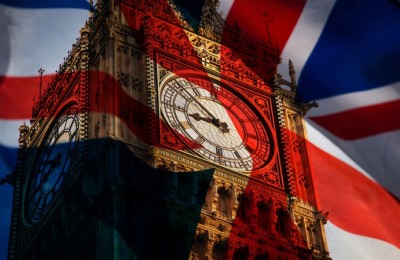
David Worsfold
The insurance industry finds itself united with the rest of the country in apprehension and concern at the prospect of months of uncertainty following last week’s unexpectedly inconclusive General Election result.
Brexit, whiplash reforms, discount rate review, Insurance Premium Tax and a host of other crucial issues for the insurance industry have all been thrown into a volatile melting pot.
The politics of this will play out over the next few weeks and months with Theresa May’s weak position being the only constant theme. It is likely to to have only one outcome – another election within six months as Allianz chief economist Michael Heise warns: “Another election before year end is a possibility. Political uncertainty will weigh heavily on sterling, consumer confidence and investment.”
In the meantime, the insurance industry will have the impact of Brexit at the top of its agenda.
Ahead of the planned formal start of negotiations with the European Union next Monday (19th June), the financial services sector is feeling slightly more optimistic about the prospects of a more favorable outcome. With Philip Hammond remaining as Chancellor – he would have gone had May secured a big majority – the voice of business will be heard more clearly at the negotiating table.
In recent months, senior City figures have despaired at their dealings with the frontline Brexit negotiating team of David Davis and Liam Fox. (Boris Johnson never warrants a mention as he appears not to have taken any interest in the details of the financial services sector’s concerns.) The government’s love affair with a hard Brexit with controlling immigration as its top priority had left them gloomy and pessimistic about their prospects of rescuing any access to the Single Market using new passporting or equivalence rules.
The one glimmer of hope had been the Treasury and Hammond’s focus on the need to prioritise jobs and business in the negotiations. However, May didn’t want to hear this alternative scenario and had shut him out of the discussions ahead of expecting to be able to sack him. His voice will now be heard more clearly but he won’t be alone.
Other key cabinet ministers such as Defence Secretary Michael Fallon are also now going public on their belief that trade needs to be kept at the top of the agenda, preferring to talk about a “full Brexit” rather than hard or soft. Speaking on BBC TV on Sunday, he said: “I think everybody wants to see an agreement in the end that does respect what the British people voted for last year - makes sure that our cooperation with Europe continues, our trade with Europe continues, our security cooperation with Europe continues".
What does this really mean?
It means that the pendulum has swung slightly away from the extreme hard Brexit being talked about by May and anti-EU hardliners during the election campaign, but it is nowhere near pointing to a soft Brexit that includes continued membership of the Single Market.
This caution was summed up by the reaction of Mark Burgess, Chief Investment Officer, EMEA and Global Head of Equities, Columbia Threadneedle Investments.
“The election result has reduced the likelihood of a hard Brexit, which is economically positive for the UK and Europe. A softer approach to Brexit could for example see potential structural support for sterling down the line. It seems reasonable that any Brexit deal will now be subject to greater Parliamentary scrutiny and the government is more likely to seek to retain some elements of single market access.
“Beyond that, it’s hard to draw firm conclusions regarding growth and spending at this point. While they have been reasonably resilient since the referendum, we’ve seen a definite softening more recently. UK consumer confidence appears to be running out of road and we are likely to see further weakening of the UK economy which will hit over-leveraged households”.
This hesitant optimism has done little to reduce the prospects of a chaotic conclusion to the negotiations in March 2019. That remains a possibility and one that insurers and the investment markets will still have to prepare for.
The insurance industry still has some major issues on the domestic political agenda, especially the whiplash reforms in the Prison and Courts Bill that was abandoned in the rush to clear the legislative decks before the election and the promised review of the discount rate.
Liz Truss, who was Justice Secretary is now the number two in the Treasury team with her place taken by David Lidlington, Minister for Europe under David Cameron and recently Leader of the House of Commons.
The industry will be glad to see a fresh face at the Justice Ministry as it was concerned about shifting Truss from her position on the discount rate which has forced insurers to reserve billions more to cover the costs of catastrophic personal injury claims.
Huw Evans, director general of the Association of British Insurers welcomed the change: “We will be aiming to meet with ministers at the Ministry of Justice at the earliest opportunity to ensure they understand the urgency of reforming the discount rate, and to emphasise the importance of continuing the government’s valuable work on personal injury reform. I’m confident we’ll get a good hearing."
Elsewhere in the industry, there were some celebrations when two Treasury ministers lost their seats. Graeme Trudgill, executive director of the British Insurance Brokers’ Association said the stand-out result for the insurance sector was Simon Kirby, previously City Minister, Insurance Minister and Economic Secretary to the Treasury losing his seat, along with Jane Ellison, who was the Financial Secretary to the Treasury.
“They were the two that were there when we had the IPT increases recently. They haven’t been particularly helpful for our sector whereas previous Treasury ministers have been very supportive.”
For the rest of this year, every week in politics is going to seem a very long time.
